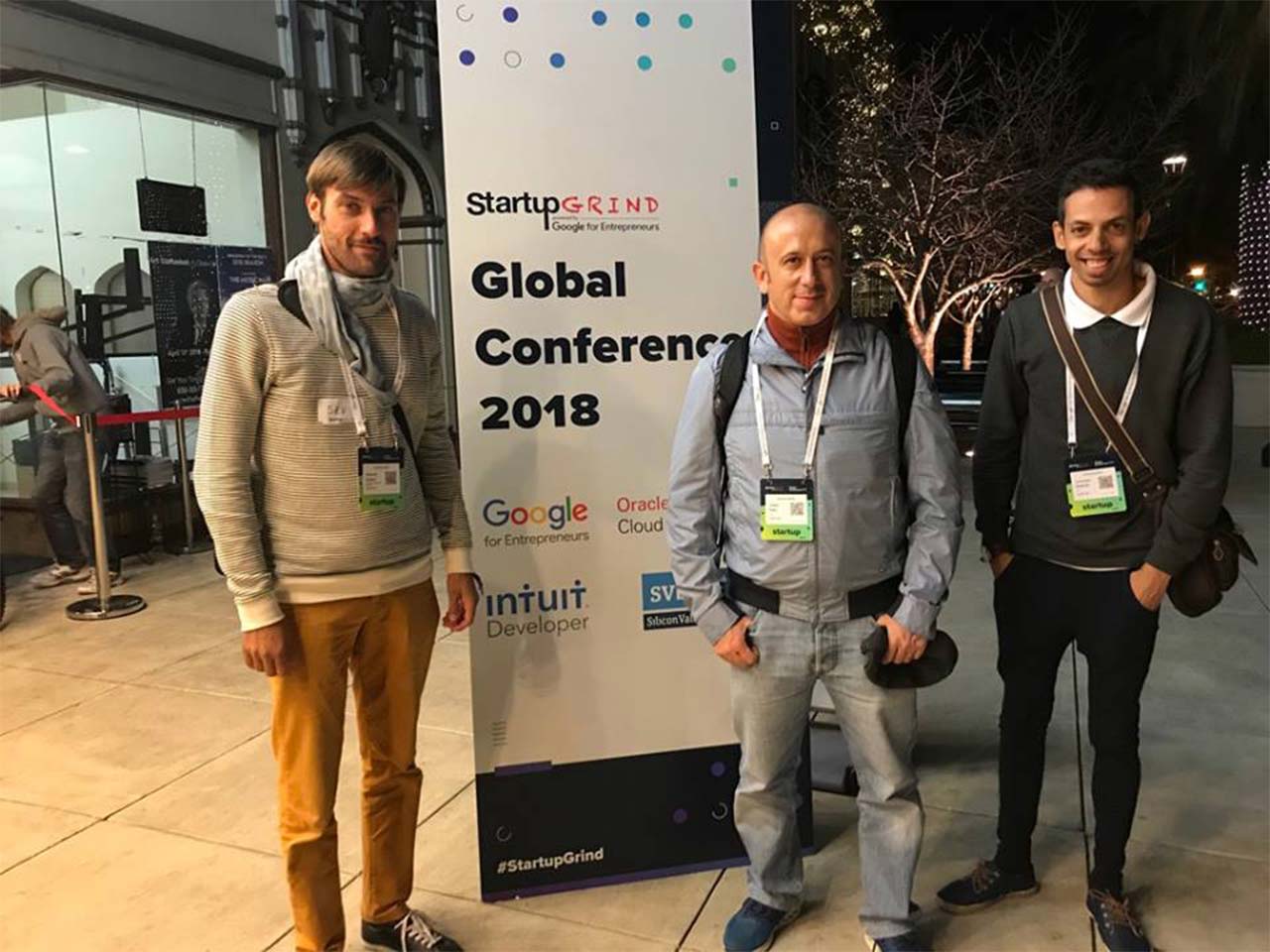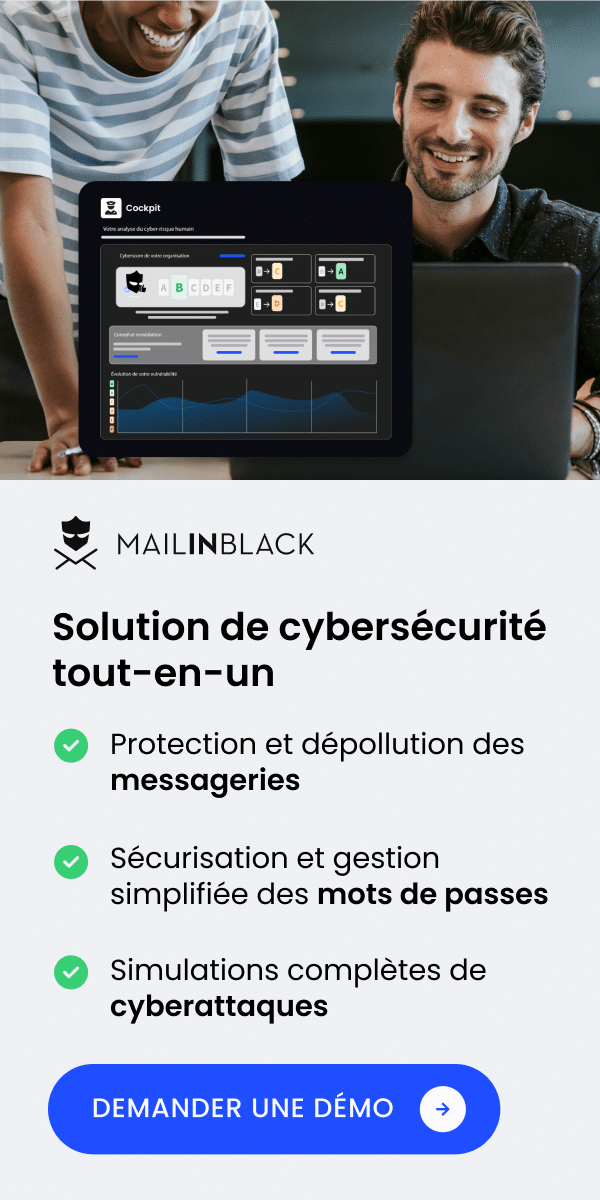We recently told you about it in an article, Expat.com, a Mauritian company conquering the Silicon Valley. This Mauritian company found itself in the heart of Silicon Valley during February to attend the Startup Grind Global Conference 2018. Ict.io’s editorial staff took a close look at the specialist of life abroad. For this, we went to meet Julien Faliu, founder of Expat.com…
With a very casual look, proudly wearing theExpat.com t-shirt, Julien Faliu is the founder of Expat.com, a perfect example of entrepreneurial success. The Mauritian company has not only participated in the Startup Grind Global Conference 2018, but it was very recently featured on the show Zone Interdite on M6. Who better to tell us the story of Expat.com than its founder?
Hello Julien, can you tell us more about yourself ? Who is Julien the creator of Expat.com?
“I am a French entrepreneur, I am 39 years old and I have been living in Mauritius for 11 years. My wife and granddaughter are Mauritian. I am very happy to live here and to share the 50 years of independence with all Mauritians. I am an entrepreneur who has been in the internet business since the 90’s, and I sold my first site in 1998. If it doesn’t make me any younger, it suggests that I’ve spent half my life doing the internet, I’m passionate about it.
I discovered this medium when the world was still in the “early stage ” of the Internet, a period when the web was not at all commercial and was still reserved for technicians and engineers. At that time, we could not share our experience with the uninitiated and we could not create a web page. I could see this media evolve with video, animations and everything that goes with it. Skype, Google, Facebook did not exist! I’m really passionate about this medium, convinced that IT in general should be at the service of causes, of business: IT itself is a medium.”
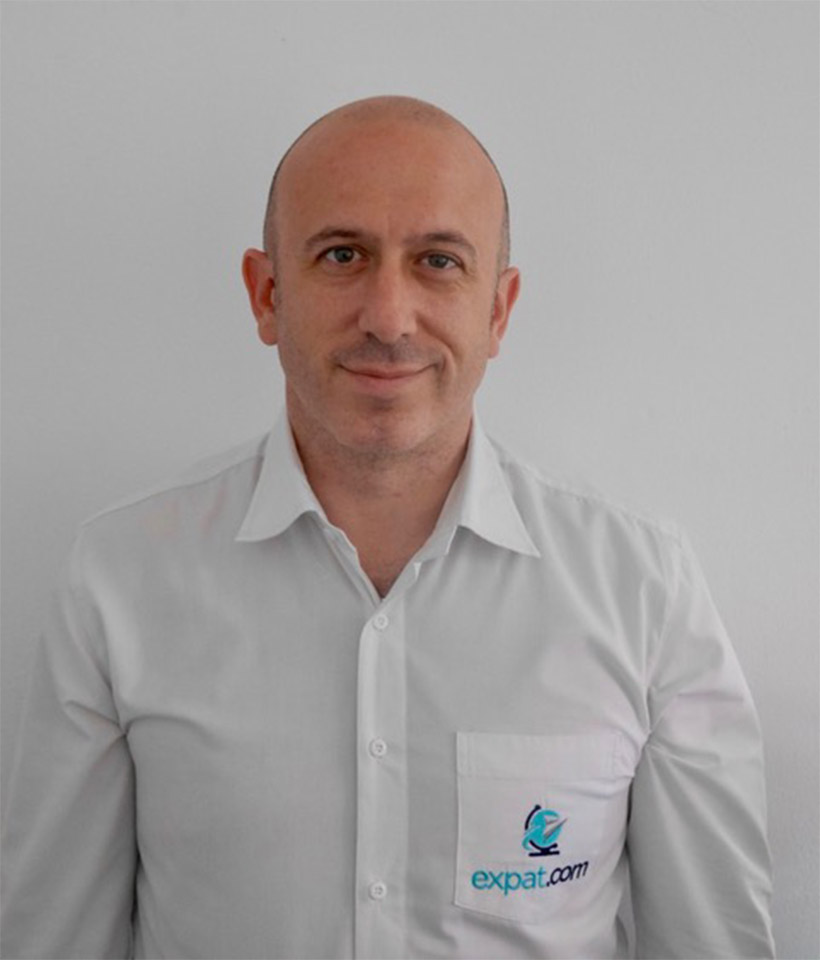
Tell us how you came up with the idea of creating the startup Expat.com.
“I’ve been living abroad for over 15 years now. As a student, I interned in a startup in Barcelona in 1999-2000, but I consider that I really left home in 2003 for London, then Madrid, with another detour via London. Finally, I settled in Mauritius in June 2007.
In all these experiences abroad, the observation was the same: I didn’t know where to start, I didn’t have any contacts, it was very difficult. Based on this personal experience, I thought I would focus on this issue and create a support platform for those who live or want to live abroad. That’s why I created Expat.com.”
What does Expat.com offer today?
“Today, Expat.com offers three services! The first is content, information, on everything you need to prepare to live abroad. The second service focuses on networking, facilitating networking by organizing meetings for our members, where everyone is welcome. This allows newcomers to meet other people. For the third part, we offer premium services such as health insurance for expatriates, moving services, financial advice, among others. We are not service providers, but free intermediaries between banks and insurers. So we put our clients in touch with them (insurers, banks).
Today we are on a completely bootstrapped platform (editor’s note: self-financing, also called Bootstrapping). We’re not going to raise money today, although we’re thinking about it more and more, but we don’t need to. Our platform has 2 million customer members, 3,800,000 visitors per month, or more than 200,000 people per day on the site. We do over a million dollars a year in sales, which the Americans have been very happy about. The idea that we started from scratch and are able to make such a large turnover is very appealing to them.”
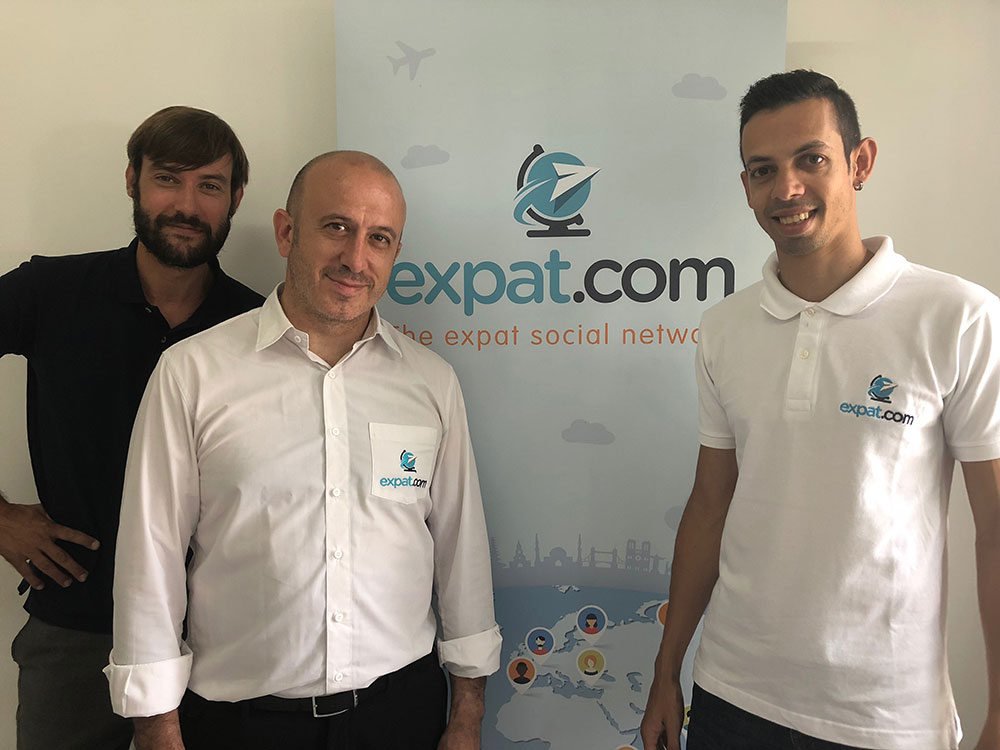
“We work in countries all over the world and we have millions of members around the world, members who can receive help from other members in many situations. Whether you want to move to Canada, Japan or London today, through Expat.com you can get in touch with people who are already there, read guides to inform yourself, get information about the cost of moving, all for free. The platform is completely free for our members. Professionals who wish to promote their services pay for this, which is perfectly normal.
Today we are trying to speed it up to cope with the large number of requests. People living abroad are everywhere, there are more and more of them and that’s good. It is important to see how things are done on other borders, to mix. I am in favour of interculturalism, of sharing and I think that for that, the project is very good in Mauritius. We are in a very multicultural country, sharing is part of our daily life and we feel good here.”
How did a Mauritian company make it into the top 50 of a global selection of startups?
“First of all, there was a selection process based on a file that we submitted several months in advance. Following the filing, we had a meeting during which I explained what the company does and its purpose. It’s about storytelling about the company; you really have to put some energy into getting through this stage. We had to explain our legitimacy in the market, why we do this and why we are better than others, and finally why I am the founder. As I explained at the beginning, I have been living abroad for 15 years, I have experienced all the difficulties that one can encounter when one is abroad, and I wanted to respond to this need that I had myself. This makes it easier to justify this approach.
After the interview, we know if we are selected…or not. We were selected among the first 130 startups in the running to go to San Francisco.
Thousands of startups have applied and 130 have been selected, with many American startups participating. Following this, we confirmed our participation. Besides, we had three days to confirm our arrival, because they give the possibility to withdraw. It’s also worth noting that we paid for the trip to San Francisco out of our own pockets.”
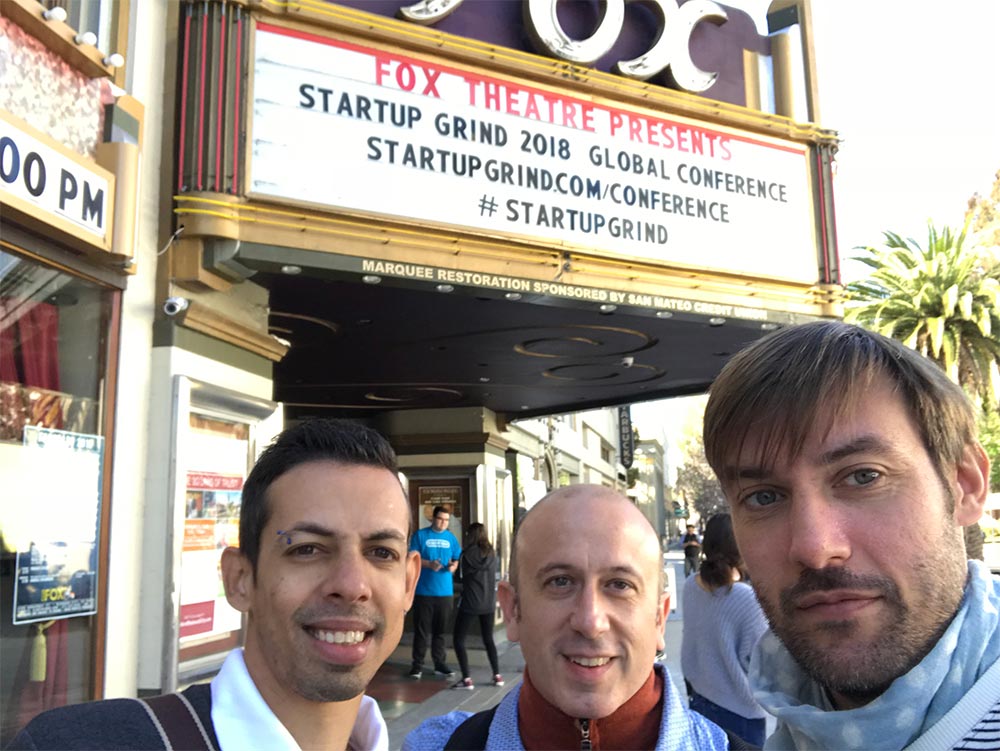
“From there, there was another rank, the top 50, knowing that we were accompanied for a day and during the whole experience, much closer by the organizers. The latter led us to pitch on stage: we were about fifty to have more visibility during the event, to have appointments with Venture Capitalists (VC) for a meeting on site.
This allowed me to submit a much more complete file that explained our vision, an executive summary, our market study, our pitch and why we, rather than others. It took us a few days, with a January 4 deadline for submission. So, on January 2, I celebrated the New Year by filling out a file!
From the moment we knew we were selected, the team put together the file on January 3rd, for the top 50 results to be announced between January 15th and 30th: for us, it was January 28th.
I think it was deliberate on their part, they are very good at building suspense, tension, it was like that throughout the event. As the results were given as they came in, everything was done to maintain a kind of tension, because in the end, when the pressure is off, you don’t realise what has happened.
It’s very interesting, exciting and everyone is kept on their toes. At the end of January I learned that we had been selected for the top 50, knowing that the event was held on the 13th and 14th of February with a training session on the 12th: we still had to arrive before the 12th.
It was predictable, I knew we were credible, that we may be from a small island, but we are a startup and as long as a project is viable, as long as it has a sponsor behind it, it holds up!”
We’ve been followingExpat. com’s adventure in the heart of Silicon Valley thanks to social networks, but we want to hear your side of the story: how did you and the team experience it?
“We were very credible in the US, and I was lucky enough to pitch on the main stage with 1,500 people. In concrete terms, you had to explain 8 years of business in one minute. To see the result, I let you discover the video available on YouTube… I’m quite happy with our performance.
Following the pitch, we met with investors who made it clear that they were interested and wanted to know more about what we do. It was very interesting, very challenging. Very direct, they are able to give an opinion in 3 minutes. If they are interested, a confidentiality agreement is signed and information is exchanged. If not, they say so too. I would say that most found it interesting, but not to the point of going further.
We arrived in San Francisco on Saturday full of tiredness, because between Mauritius and San Francisco, there are 26 hours of travel, without counting the taxis, which made the meter go up to 28 or 29 hours of travel.
On Monday, we went to a training session with investors, including Silicon Valley Bank, which finances large startups and technology companies. Then we attended different conferences, and then worked with a coach from Silicon Valley Bank on pitching in groups of 10 companies.”
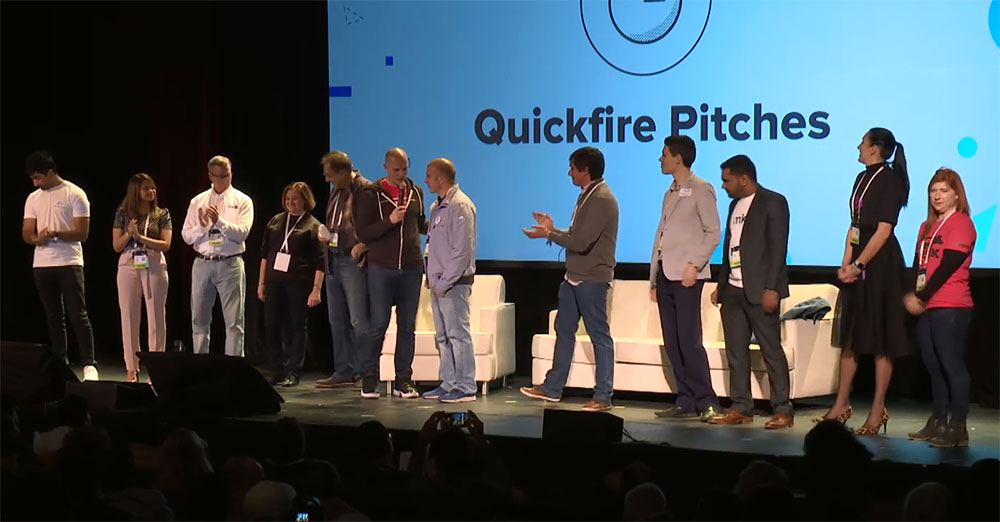
“For training, we pitched in front of other companies, then pitched again in front of all 50, a stressful time, as we didn’t know what the other companies were about!
The organizers were more or less aware of this, but they didn’t know where we were supposed to position ourselves and how to get out. While many of the selected startups were in their “early stage“, i.e. products still in development, our project was more mature. So we came in with some credibility, which helped me to make an “almost perfect” presentation according to the coach!
It was an impressive adventure and with a minute’s time to pitch, there’s no beating about the bush! One of the first lessons we learned was that you have to think big, whether you’re creating an application or something else, you have to see how it’s going to be deployed in the world. It is important to think global from the start, so it is important to “think global” and then “act local“. We need to find a model that is global but can be adapted locally.
Thinking it’s big and being ambitious is mostly about convincing in a very short time. That’s where the expression “elevator pitch” comes from: in 30 seconds they know if they are interested or not, then next.
In the end, it’s an interesting exercise, a bit hard, but it’s pretty good, because it avoids talking for 2 hours to say nothing. Sometimes we go to introductory meetings with people who are interested but don’t give any more news. Here, it’s much faster and more productive.”
What do you learn from such an experience?
“First, it boosts confidence in our future, since for years we have been working on a product, a project and as a founder, there is always this need for legitimacy. Will it work? Is it just a dream? My answer to the second question is no, because we have found our place, and we now have a certain reputation.
How do the Americans perceive our project? Silicon Valley is the benchmark, and we have been credible. From there, we know that we have interested people, and that gives us a lot of confidence: we are going to make it! However, we are all aware, both on the American side and on our side, that the road will be paved with trials, but that is part of the process, and there is an expression that says “Try and fail and try again”, more colloquially, I try, I fail and I learn.
According to the Americans, we learn more easily from our mistakes than from our successes. So it’s okay to get some things wrong as long as you learn from it and walk away with stronger confidence in the project.”
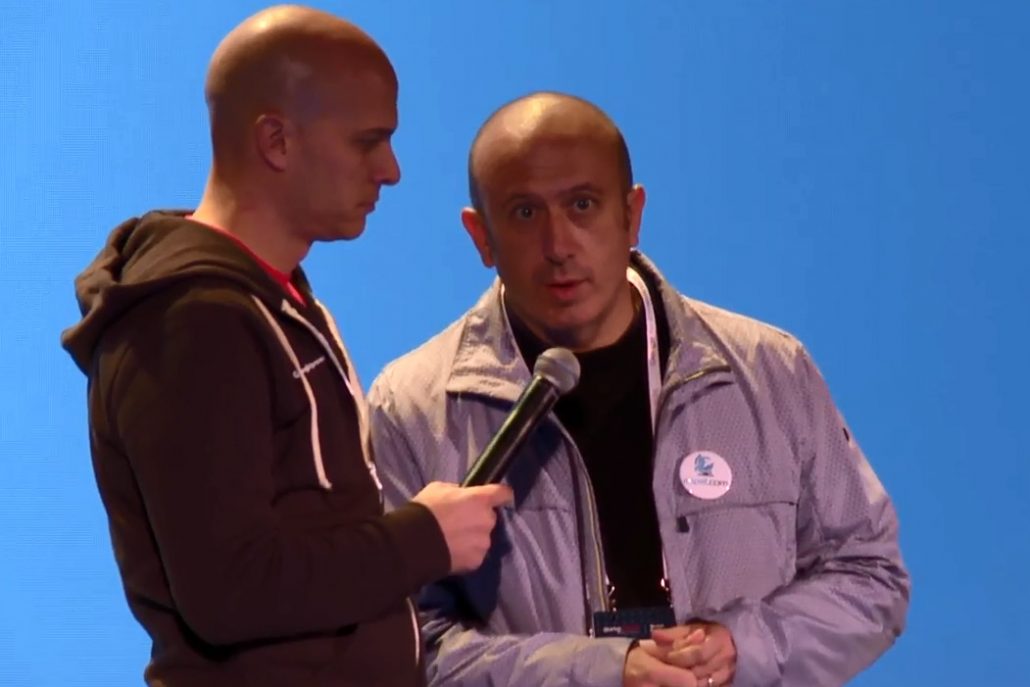
“We can do it and we will do it, because it is rewarding for us and for Mauritius. We had a legitimate place there: We put Mauritius on the map! As I started my pitch, I answered the presenter: “I am coming from Mauritius” with a sincere pride. If that wasn’t part of the pitch, I wanted to let everyone know! We are Mauritians, we are a small company here in Mauritius, but this is actually a big project and if we managed to work, to recruit the right people, we have the ambition to become the champion startup in Mauritius, because here, it is possible. We can offer the same services we do here to Americans and the entire planet!”
What about investors?
“During our stay there, we did a training to have the right speech towards the investors. We met four of them on the spot, coming from America and India. Later, we were contacted by an Australian, then a Frenchman who was not on site, but who saw the intervention online. That was impressive.
Now we are in the discovery phase, not negotiating yet, but exchanges are taking place.
We also learned that the VC is a real investor: when he funds a company, he absolutely has to make money. Conversely, it is not interested in projects that have no profitability potential. The first investor I met judged my pitch in the following terms: “I don’t see where my millions dollars are. So I’m not interested. I argued about the expatriate insurance market and its 15 billion dollars per year, but he had already decided. It’s this type of situation that makes the challenge interesting!
Can you share with us the next steps for Expat.com?
“We have two paths: the first is to develop disruptive features for our market with two very advanced projects involving new technologies. So, for the first phase, we’re going to recruit, because we need at least 35 or 40 people to do it. The second is internationalization, which means that we want to develop in certain markets and to do that we have to be present. We need to build a network of agents, representatives, who will work for us around the world.
We want to develop globally, and apply the English way: “let’s go global”. We are already promoted in this sense, as we work in five languages: English, French, Spanish, Italian and Portuguese since Mauritius.
The future is perhaps a reform in the coming months to accelerate and be able to settle abroad. We are a Mauritian company and very proud of it, but there will come a time when we will have to go beyond the island to expand and go to Dubai for example. If you want to open in Singapore, you have to be present in Singapore.
Doing this from Mauritius is a bit difficult, and by being on site, we will be able to work better. To do this, we will have to go through an intense recruitment phase and establish our needs, including a dozen or so experienced developers. This is a point that the Americans do not understand. Despite our profits and our desire to expand, we are having trouble finding the necessary brains. Mind you, it’s not that people lack skills here, but it’s the availability that is lacking. Most of them are already working here. Besides, we are recruiting about ten experienced developers to join the adventure.”
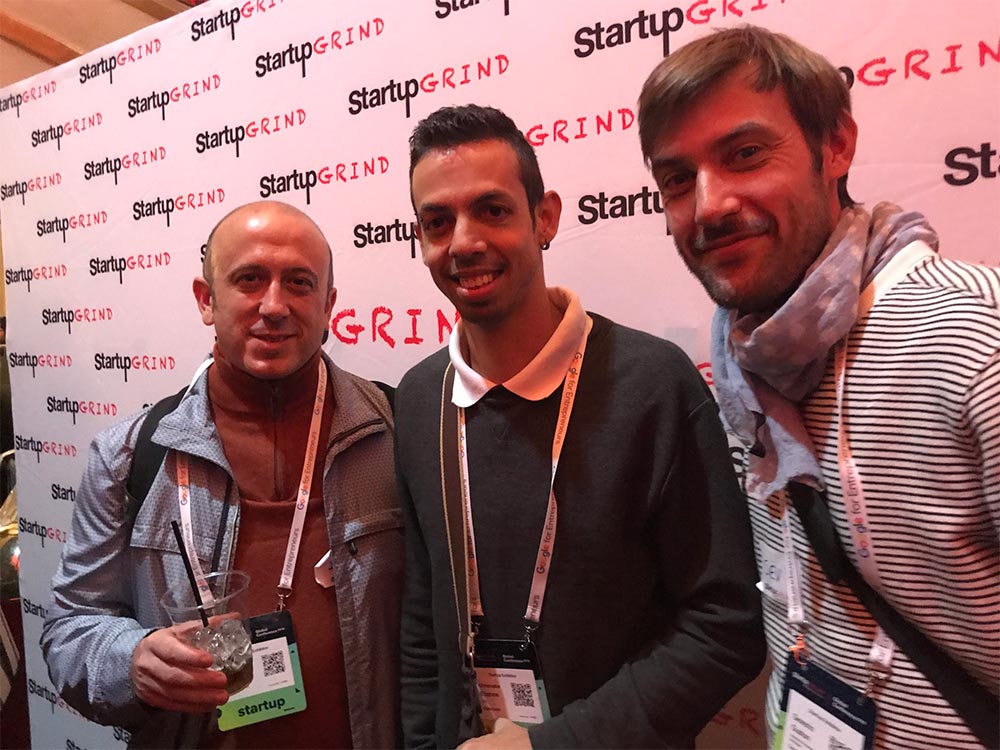
What advice would you give to those who want to embark on an entrepreneurial adventure?
“Don’t hesitate to share their ideas! We can be sure that on the other side of the planet, someone has the same idea that I, you or we may have. Maybe not at the same time, but in idea, it happens. For a startup that has local ambition, but in the global market, we can be sure that someone else has the same idea. However, they may not have the same motivation. So it’s not the idea that counts, but the execution.
Many people say to themselves “I have a great idea, but I don’t share it, I keep it to myself” without actually putting it into practice. It’s not about having an idea, it’s about doing it and sharing it. And if the idea is copied, it means it works. During our trip, we were also told “if you say to an investor you don’t have any competition, they will tell you that this does not exist!
Competition is good, but you have to stand out and do better than others in the market. To do this, you must not be afraid, share your ideas first and foremost, while showing resilience in the face of hard times. Some ideas work, some don’t, that’s business life. You have to know how to speed up, fight and not be afraid of the difficulties to continue. All of these elements together make a company successful. In hard times, you have to have that ability to get up and say it’s okay, and then throw yourself back into the fray. By firmly believing in your idea, you must fight and work for it. As for me, I work hard, as does the Expat.com team, which has allowed us to be selected for Silicon Valley. We can all do it, but we have to give ourselves the means to do it, to work and to hang on.
Expat.com is a great example of entrepreneurial success and makes our island proud. A personal experience transformed into a real service to help others, an idea that we can only welcome. “The experience I have, I will be happy to share it with Mauritians, especially with the younger ones and all those tempted by startups. I volunteer to help, to give advice. If I can bring this advice to the Mauritian ecosystem, I will be delighted,” says Julien.
“It’s not because we’re on a small island that we have to think small, so we have to think big from the start. What’s exciting about the internet is that if we can do it here, we can do it anywhere,” says Julien to close this very inspiring share for those who want to take on the challenge of setting up their startup.

